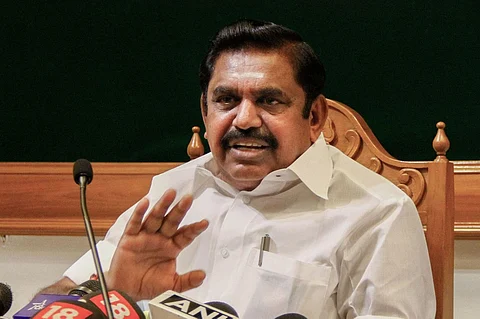

Tamil Nadu has reportedly agreed to the first borrowing option for GST dues put forward by the Union government at the GST Council meeting that was held on Monday. This comes after the state earlier raised objections with the proposal of states borrowing to meet the GST revenue shortfall.
The state’s Fisheries Minister D Jayakumar, who attended the meeting through video conferencing on Monday reportedly said that Tamil Nadu is choosing option 1 given the limited options available, but said that the assumption of 10% growth in the option 1 is highly unrealistic.
He reportedly also said that the state hopes it will be reworked to ‘reflect a higher proportion of the actual loss in revenue of states’. Option 2 has been worked out to be completely unattractive and unacceptable to almost all states, he noted.
Jayakumar also said that till July 2020, Rs 12,258.94 crore of GST compensation was due to the state.
At the GST Council meeting on Monday, no consensus was reached between the Finance Ministry and the states over the two borrowing options presented by the Centre. However, FM Sitharaman approved extension of the GST compensation cess levy by two years till 2024. The GST Council will meet again on October 12.
At the previous GST Council meeting, the Centre presented states with two options to borrow the GST compensation shortfall.
The first option was that the Centre would provide a special window to states to borrow Rs 97,000 crore at a reasonable rate of interest in consultation with the RBI. This amount is the shortfall arising out of implementation of GST. This figure of Rs 97,000 crore has been arrived at assuming that compared to last year’s GST collection, 10% more would be the GST collection in a normal situation.
The second option was that states could borrow the entire GST compensation gap of Rs 2,35,000 crore through a special window. This includes Rs 97,000 crore, which is the GST shortfall, and the remaining which on account of the COVID-19 pandemic.
In the previous GST Council meeting, Jayakumar had said that the Centre must find the required funds to compensate states and mobilise resources to lend states their GST compensation.
Jayakumar also reportedly noted that an artificial distinction was being drawn between revenue loss from GST implementation and losses arising due to COVID-19 in option 1 and claimed that this was being done in an effort to limit the total amount of borrowing in 2020-21.
Despite choosing the first option, the minister reiterated that the state’s stance has been that it was the Centre’s legal and moral obligation to pay states their GST compensation.
“For the current financial year, partial release of compensation may be a compulsion. But this ought not to be justified based on the presumptive loss solely on account of introduction of GST. It is a fait accompli that given the fiscal situation, States have to remain content with receiving only a portion of the compensation,” he reportedly said.